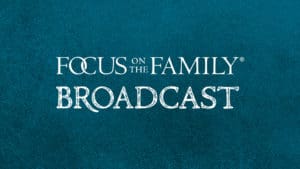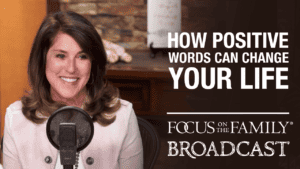John Fuller: This is Focus on the Family with Jim Daly. And as you continue to, kind of, wade through the daily tide of coronavirus information, we want to offer some discernment and clarity so you can know how to keep your family healthy and safe. Thanks for joining us today. I’m John Fuller.
Jim Daly: John, every day we’re hearing from listeners who are experiencing anxiety related to the coronavirus. And that’s understandable. Beyond the sickness itself there are empty grocery store shelves. Closed schools and churches. And now, uh, the Shelter-In-Place orders that many states have put into place and some cities as well. To answer the common questions, we’re hearing and ease some of that anxiety, we invited Dr. Dan Hinthorn to join us today.
John: And Dr. Hinthorn is a renown infectious disease specialist at the University of Kansas Medical Center. He’s also a member of our Physicians Resource Counsel here at Focus of the Family.
Jim: Dr. Hinthorn, good to have you back to Focus on the Family. Thank you for your work on the Physician Resource Counsel, uh, that great, uh, group of physicians that help Focus in so many different ways. Thank you for the years you’ve served in that way, too.
Dr. Daniel Hinthorn: Well, sure. Thank you. And it’s been a pleasure to do so.
Jim: Hey, you’re there in Kansas City. Obviously working from your home office. We can hear the computer in the background. (Laughter)
Dr. Hinthorn: (Laughter) Actually, I’m in the hospital.
Jim: Oh, you’re at the hospital. Well, there you go. An area that’s been ordered to Shelter-In-Place is Kansas City, Kansas where you live. Uh, describe what you’re seeing. Of course, other parts of the country are in that same situation – Shelter-In-Place. I believe in Denver here in Colorado they just, uh, had that order the other day for Denver residents. Um, it’s not statewide for us yet. But places like Michigan and California, of course. So, Shelter-In-Place, why is important? Should we take it lightly or take it seriously?
Dr. Hinthorn: We should take it seriously. What we’re trying to do is to try to reduce transmission from person to person. And reduce that, uh, (unintelligible) value so that we don’t, uh – we don’t keep transmitting it like we have been. Uh, it’s just been, uh, in the counties where we live here in Kansas have just been spreading incredibly and we’re seeing more new cases that are diagnosed every day. Uh, we have a number of them here. In fact, you talk about Shelter-In-Place – of course, that doesn’t apply to the doctors because we’ve got to get to the hospital as well as our nurses. And a number of other people to support us. To make – to take care of these folks.
Jim: Well, that’s so true. Let me ask you this question. It’s been in the media a lot. Uh, the CDC and, uh, doctors are working to fight this virus. Uh, we’ve talked about or heard about some of the success that these anti-malarial drugs have had in France and other places. I think when we watch the news, it seems that doctors are very, uh, cautious and perhaps a lot more cautious than many of us we think we’d want to be in this environment using these anti-malarial drugs to see if they can beat the virus. Why is there this over-cautiousness that some might perceive versus an aggressive attitude. Let’s test it. Let’s do it. Let’s see if it works and then get that out to as many people as possible.
Dr. Hinthorn: Well, it’s – it’s kind of a – a dilemma. Because we have a limited supply of this medication. At least we have in the past. Although, we’re finding out that there are more stockpiles of this in some places than we realized. But the other side of it is that there are a few people that will have adverse effects from the drugs. So, that people who are taking certain other medications could have real deleterious effect, uh, on their heart and have, um, what we call QTc prolongation and then they could have, uh, abnormal rhythms and the could in fact die. Uh, if a person takes these medications on a long-term basis some people get eye problems and so there’s just a number of things that people can’t tolerate. Basically, they’re pretty safe and lots of the world where there’s lots of malaria they take these a lot. And tend not to have a lot of problem with them so, um, that’s the dilemma. And the other side of it is, we don’t know if these are helpful or not. In the test tube, the experimental studies, look like they probably would be. And if we look at it for other coronaviruses, they look very helpful and so they may well be for this one and we’re hoping they are. But it hasn’t been proved yet.
Jim: Let me ask you, too, uh, perhaps the question in being an infectious disease specialist, how long do you think this will go?
Dr. Hinthorn: Oh. If we look to see to what’s happening in China in Wuhan, uh, it’s only now tapering down and what we are talking about – 3 months? Something like that.
Jim: Right.
Dr. Hinthorn: So, uh, unless we see it, uh, tailing off pretty fast because of this, um, Sheltering-In-Place that we’re doing now, we could anticipate that it’ll go several more weeks. I don’t – it looks to us like we’re on the up-swing now not – not on the down-swing. I’m hoping that I’m wrong and I’m hoping that we’ve peaked and that we’re – that we’re coming down with the number of cases now. But I don’t know that that’s true.
Jim: Yeah. And perhaps the last question because I know that you’re at the hospital and you need to get going. Um, from a faith perspective, being a Christian physician, uh, how do you wrap your mind around everything that’s going on?
Dr. Hinthorn: (Chuckles) You know, we can’t understand it as Christians, and more than non-Christians can understand it. It’s one of those things that has always happened to people. Maybe not this particular one, but plagues, have, uh, been a factor of the human race from as far back as we know. And, uh, it’s been one organism versus another. It used to be bacterial processes and then various viral processes and influenzas. And we can really not understand just why it happens. But it does. And that’s all the result that stand. The sin of the world brought death and brought illness. And so, we suffer through it.
Jim: I would say, Dr. Hinthorn, the great thing as believers is, we can put our total trust in Christ. And, uh, even depending upon what gets us in this life – something does eventually get us all. Nobody, uh, gets away from death. And, uh, hopefully this is a time for us to rethink mortality – the spiritual dimension of being created in His image. And the idea that we as believers believe in eternity. And those are the things that come to the surface in this kind of desperate time when people began to think about that and how we behave in the culture communicates a lot about our faithfulness – our trust in Him regardless of our circumstances. And, uh, I want to again say thank you for what you’re doing and for the faith that you bring to your vocation as a physician. Thank you very much.
Dr. Hinthorn: Well that’s – you’re quite welcome. And, you know, that’s true. I agree with you. Uh, Elise and I are praying the 91st Psalm each day and not just for ourselves but for the people that our associates. The people we work with. Uh, the family, and, uh, I think that’s a good thing to give, um, to help dispel the fears. Trusting in God.
Jim: Yeah. Well, that’s so good and I hope our listeners will turn to that 91st Psalm and read it. God bless you, doctor.
Dr. Hinthorn: Thank you.
John: If you’re feeling anxiety or tension in your family because of this virus. We understand and please don’t hesitate to reach out to us. We have so many resources and articles for you and, uh, a really caring Christian counseling team as well. Let us know how we can serve you. Our number is 800, the letter A, and the word FAMILY. Or stop by focusonthefamily.com/broadcast.
Lee Strobel: This living hope is linked to the truth of the resurrection of Jesus Christ. That He didn’t just claim to be the Son of God, He backed up that claim by returning from the dead. And because He has conquered the grave, guess what? All of us who follow Him will conquer the grave as well. That, friends, is living hope.
John: What a great perspective from our featured guest, Pastor Lee Strobel, on today’s episode of Focus on the Family with your host, Focus president, Jim Daly. And I’m John Fuller.
Jim: John, we’re continuing our response to the coronavirus pandemic by featuring a very encouraging message from Lee Strobel. He gave this message just 10 days ago at Woodlands Church, near Houston, Texas, where he is a teaching pastor. And if you missed part one of Lee’s presentation last time, uh, please get in touch with us. We can send you the entire message on CD or audio download. Or you can get the Focus on the Family app for your smartphone which is a great way to listen.
John: It’s how I often listen, Jim. Give us a call if you have any questions. 800, the letter A, and the word FAMILY. Where you’ll find the, uh, resources at focusonthefamily.com/broadcast.
Jim: And John, this is so remarkable, Lee told us that when Woodlands Church live-streamed this presentation, hundreds of people responded to say that they wanted to make a personal commitment to Jesus Christ. I mean, that is what it’s all about.
John: What a tremendous impact. Hundreds of people coming to Christ during these uncertain days. I should mention, you can find Lee’s sermon – the entire presentation today on our YouTube channel, as well. Lee Strobel is an evangelist and an author. He’s written about his journey from being an atheist to a committed believer. That was in his book The Case for Christ which became quite a popular movie as well. He’s the Founding Director of the Lee Strobel Center for Evangelism and Applied Apologetics at Colorado Christian University. Here’s Lee Strobel on Focus on the Family.
Lee: Now my brother, his whole life, has been an adamant atheist. And it’s my hope that in those final waning moments of his life when he knew he was going to die that he reached out and called out to God. You know, the Bible says, “Whoever calls on the Lord will be saved.” And I hope that in those final moments he called out to the Lord knowing the Lord will save him even in those waning moments.
I think of my father-in-law who was an atheist. He called out to the Lord in the last cogent conversation of his life. And then had stroke, and he lingered, and then he died. And I will spend eternity in heaven with him. Even though after 89 years as an atheist – even in those last moments of his life he received his free gift of God’s grace. And I believe that God saved him.
But I know what goes on the minds of skeptic – in the minds of atheist. ‘Cause like my brother, I was an atheist for much of my life. And I can remember those times when everything seemed hopeless beyond this world. In other words, you’d – you – you – you’d look into the darkness at night and you’d think, “Is this all there is? Is this all that life is? What happens when I die? Do I just get snuffed out? Do I just rot in a casket forever?” There’s an ominous of hopelessness in situations like that.
But today, of course, my attitude is far different because now I’m a follower of Jesus Christ. And now I have hope that my death is not an ending, it is a new beginning to something even more glorious. But you’ve got to understand something about this hope that I have. It is not a blind optimism. It is not wishful thinking. It is not “I’m going to cross my fingers and hope and hope and hope that this Christianity stuff is true.” That is not Biblical hope.
The antidote to the virus of worry about death is what the Bible calls “living hope” – living hope. We find it in 1 Peter 1 verse 3. It says this, “Praise be to the God and Father of our Lord Jesus Christ. In His great mercy, He has given us new birth into a living hope through the resurrection of Jesus Christ from the dead.” In other words, this living hope is linked to the truth of the resurrection of Jesus Christ. That He didn’t just claim to be the Son of God, He backed up that claim by returning from the dead. And because He has conquered the grave, guess what? All of us who follow Him will conquer the grave as well. That, friends, is living hope.
But it is not a, um – a blind optimism. It’s not just wishful thinking because we have – and God has provided for us – solid historical evidence that our faith in the resurrection of Jesus and, therefore, this living hope – that our faith is well-placed.
I was an atheist. I spent two years of my life investigating whether or not the resurrection of Jesus is a fantasy, make believe, wishful thinking, or whether it’s based on a solid foundation of historical truth. And what I learned I can summarize real quickly in four words that begin with the letter E. The first E stands for the word execution. That Jesus really was dead after being crucified.
You know, there is no record anywhere of anyone ever surviving a full, Roman crucifixion. In fact, no less of a source than the Journal of the American Medical Association – a secular, peer-reviewed, scientific, medical journal carried an investigation into the death of Jesus, and this was the conclusion. Quote, “Clearly the weight of the historical and medical evidence indicates that Jesus was dead even before the wound to His side was inflicted.”
The second E stands for the word early. We have early accounts or early reports that Jesus rose from the dead. In other words, reports that go right back virtually to the scene itself. Why is that important? ‘Cause like a lot of skeptics, I used to think that the resurrection was a legend and I knew it took time for legend to develop in the ancient world. One scholar said the passage of two generations of time isn’t even enough for legend to grow up and wipe out a solid core of historical truth. We don’t have two generations of time passing here. We got a news flash that goes right back to the beginning. We have a report about the resurrection of Jesus Christ including named eyewitnesses and groups of eyewitnesses that has been dated back by scholars to within months of the death of Jesus. That is a news flash from ancient history.
John: We’re featuring Lee Strobel today on Focus on the Family and he has such a knack for making a case for Christ using his background as a journalist to really bring out the facts. And, just a reminder, you can get a CD of this program when you make a donation of any amount by calling 800, the letter A, and the word FAMILY. Or stop by focusonthefamily.com/broadcast. Let’s go ahead and return now to Lee Strobel.
Lee: The third E stands for the word empty. We have an empty tomb. How do we know? Because even the opponents of Jesus admitted the tomb was empty. We know from sources inside and outside the Bible that when the disciples began proclaiming that Jesus has risen what the opponents said was, “Oh, well, um, the disciples stole the body.”
Now thank about that. They’re conceding the fact that the tomb is empty. They’re just trying to explain how it got empty. And, of course, their cover story didn’t hold up. The disciples didn’t have the motive or the means or the opportunity to steal the body. I think the best explanation for the tomb being empty is that Jesus physically returned from the dead – especially when we combine it with the fourth word that begins with the letter E which is word eyewitnesses.
Not only was Jesus’ tomb discovered empty, but over a period of time Jesus appears alive in a dozen different instances to more than 515 people. To skeptics and doubters as well as to believers. To groups, to individuals, to men to women. Indoors. Outdoors. Daytime. Nighttime.
Get this: when we study ancient history, we’re lucky if we have one or maybe two sources to confirm a fact. And yet, for the conviction of the disciples that they encountered the resurrected Jesus we have no fewer than nine ancient sources. Inside and outside the New Testament confirming and corroborating the conviction of the disciples that they encountered the risen Christ. Friends, that is an avalanche of historical data. And we’ve also got seven ancient sources – six of them outside the Bible – that tells us that the disciples lived lives of deprivation and suffering as a result of their proclamation that Jesus had risen. They were willing to die for their proclamation that He had come back from the dead. Now think about this. Of all human beings who’ve ever lived in history they were in a unique position. They touched the resurrected Jesus. They talked with Him. They ate with Him. Of all people who’ve ever lived, they knew the truth. They knew whether this is true or whether it’s a lie. And knowing it was true they were willing to die for it. That tells me something about the veracity of their claims.
And so, we can have great confidence that our faith in Jesus Christ being the Son of God who proved it by returning from the dead – we can have great confidence from history that this is true. It really happened. And so, think about this. In an ultimate sense – think about the very worst thing that the coronavirus could do to you. If you’re a follower of Jesus Christ, the worst thing that coronavirus can do for you is usher you into the glorious presence of your loving Savior for all of eternity. Think about that. Jesus said in John 11 verse 25, “I am the resurrection and the life. The one who believes in Me will live even though they die.” I mean, that changes everything, doesn’t it?
Well, let me end with a true story that happened to a pastor by the name of Donald Barnhouse. His wife died in her 30s of cancer. And left behind three little children under the age of 12. And Dr. Barnhouse was going to go to do her funeral and so he was driving to the funeral with his three children in the car. And as they were driving along the highway a huge truck passed their car and it cast a shadow on their car. And Barnhouse’s oldest daughter was kind of staring silently out the window. And he said to her – he said, “Tell me this, sweetheart. Which would be better: to be run over by the truck or to be run over by its shadow?” And she said, “Well, by the shadow, I guess. It can’t hurt you.” And he said to his children, “Your mother has not been overrun by death, but by the shadow of death. And that is nothing to be afraid of.”
And when he got to her funeral, he picked up his Bible and he opened it to that familiar Psalm – the 23rd Psalm. That says, “Yea, though I walk through the valley of the shadow of death, I will fear no evil because You, Lord, are with me.”
You know, in dark times, and at nights, we – we all tend to see shadows. We see shadows of worry and fear and anxiety. And we even see shadows of death. You might remember when you were a little kid and you’re lying in bed and you’re looking and the – and – and there’s shadows on the closet door or – or in the wall of your bedroom. And – and you get nervous and you get scared and full of anxiety. But what do you do? You call out to your parents and they walk in. And you know what they do? They flip on the light. And the light chases away the shadows and it reminds you, “It’s okay. My parents are still in control.”
Well, Jesus said, “I am the light of the world. Whoever follows Me will never walk in darkness but will have the light of life.” And my experience as a follower of Jesus Christ has been this. That He is the only One who can capably chase away these shadows of night, of fear, anxiety, depression, and even the shadow of death.
But you know, one of the things that some people wrestle with – this fear that they have – is they say, “I – I’d like to have confidence that – that when I close my eyes for the last time in this world I’d open them in the presence of my Savoir forever. I – I wish I had that confidence, but I worry about where I stand with God. You know, am I okay with God? Are we okay? Or where – where am I at with my – with God?” And I know that’s a worry that many people have and the Bible specifically addresses it in 1 John 5:13. It says, “These things are written to you who believe in the name of the Son of God in order that you may know that you have eternal life.”
God says, “I – I don’t want you having anxiety over where you stand with Me. I don’t want you full of worry and apprehension about what’s going to happen when you die. I’ve written these things so you – you can know for a fact that you’ve been adopted as my child and you will spend eternity with Me forever.”
And so, in a moment, I’m going to give you an opportunity. It’s going to be opportunity to have all of your sins wiped away. It’s going to be an opportunity to call out to the Lord to receive this free gift of forgiveness and eternal life that Jesus purchased for you on the cross when He died as your substitute to pay for all of your sin. I’m going to give you the opportunity to know for a fact that you have been adopted as a child of God forever. So, I’m not going to ask you to close your eyes. I’m just gonna ask you just to – to look at me. Regardless of where you’re at right now. Whether you’re alone – whether you’re with others. And let me offer a prayer on your behalf.
You can say it out loud or you can just say it in your heart. ‘Cause guess what? God hears. He knows your heart. And so, in this moment, just say, “Father, thank You for who You are and what You have done for me. You sent Your Son die so that we could live together – be reconciled for eternity. Father, I admit right now the obvious which is that I am a sinner. And I want to turn from that. And in an attitude of repentance and faith I want to receive this free gift of Your grace – free gift of forgiveness and eternal life. Thank You for loving me so much that Your Son went to the cross to die so that we could be together in eternity. Help me, Father, to live the kind of life that You want me to live because this moment on, I am Yours. And now, Father, we celebrate with those who have taken that step just now. We thank You for that. We thank You that you can give them security and hope – living hope, uh, in the midst even of anxiety ridden times. So, we thank You for that. We pray for those impacted by this global health issue right now. Impacted financially or their health or their – whatever they’ve been hurt by in the midst of this. We pray for Your blessing on them. Help the church be strong in the midst of this crisis that we might be purveyors of Your love and grace to people who desperately need it. We pray this in Jesus’ name. And all God’s people said, amen.
John: And that’s how Lee Strobel ended such a powerful, timely message on today’s episode of Focus on the Family.
Jim: John, this was so encouraging. And I want to reflect back on the story Lee told a few minutes ago, about the pastor whose wife had died. Because of his faith, he was able to tell his children, “Your mother has not been overrun by death, but by the shadow of death.” And I love that expression. It’s a powerful image. As the Apostle Paul put it, “Oh death, where is thy sting?” And you know, even in situations where the enemy tries to bring destruction, which is a – pretty much a constant, the Gospel brings redemption. That’s the difference. And now during our country’s coronavirus pandemic people are more interested in hearing about the promise of eternal life. And that Jesus offers those who believe in Him eternal life. And that’s the key and it gives me hope. And if you prayed to receive Christ as Lee Strobel closed out his message, please let us know. We want to be there for you, and we would love to celebrate with you. And please visit our website to download a copy of a little e-booklet that we created and have kept updated. We’ve called it Coming Home: An Invitation to Join God’s Family. It will tell you more about the incredible journey that you’re starting on and your new relationship with Jesus Christ. It will also give you some ideas of what to do next.
John: Yeah, that booklet has helped tens of thousands of people understand better what the Christian life is about and again it’s online at focusonthefamily.com/broadcast or call us and we’d be happy to tell you more. We’d also connect you with resources including our caring Christian counselors if we can be of service to you. Our number is 800, the letter A, and the word FAMILY. And as was said earlier, if you can make a donation to support Focus on the Family at this time, we’d express our appreciation by sending a copy of this entire presentation by Lee Strobel on CD so you could listen again or pass it along to a friend who might need that eternal hope that Lee has talked about so powerfully. Once more – our number 800, the letter A, and the word FAMILY. On behalf of Jim Daly and the entire team, thanks for joining us today for Focus on the Family. I’m John Fuller inviting you back as we once again help you and your family thrive in Christ.






















